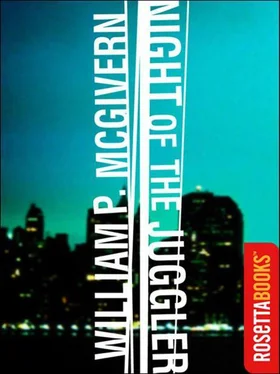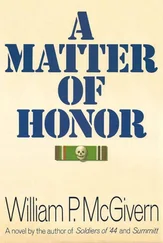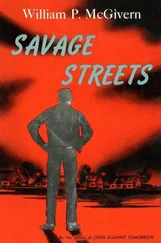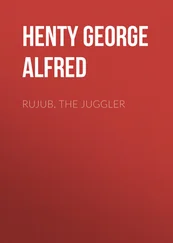William McGivern - Night of the Juggler
Здесь есть возможность читать онлайн «William McGivern - Night of the Juggler» весь текст электронной книги совершенно бесплатно (целиком полную версию без сокращений). В некоторых случаях можно слушать аудио, скачать через торрент в формате fb2 и присутствует краткое содержание. Жанр: Триллер, на английском языке. Описание произведения, (предисловие) а так же отзывы посетителей доступны на портале библиотеки ЛибКат.
- Название:Night of the Juggler
- Автор:
- Жанр:
- Год:неизвестен
- ISBN:нет данных
- Рейтинг книги:3 / 5. Голосов: 1
-
Избранное:Добавить в избранное
- Отзывы:
-
Ваша оценка:
- 60
- 1
- 2
- 3
- 4
- 5
Night of the Juggler: краткое содержание, описание и аннотация
Предлагаем к чтению аннотацию, описание, краткое содержание или предисловие (зависит от того, что написал сам автор книги «Night of the Juggler»). Если вы не нашли необходимую информацию о книге — напишите в комментариях, мы постараемся отыскать её.
Night of the Juggler — читать онлайн бесплатно полную книгу (весь текст) целиком
Ниже представлен текст книги, разбитый по страницам. Система сохранения места последней прочитанной страницы, позволяет с удобством читать онлайн бесплатно книгу «Night of the Juggler», без необходимости каждый раз заново искать на чём Вы остановились. Поставьте закладку, и сможете в любой момент перейти на страницу, на которой закончили чтение.
Интервал:
Закладка:
But an additional element had threaded itself into his emotional complex of lusts and compulsions and angers. And that was fear. In his dim mind, he knew someone had told on him. . Men who would hurt him had chased him and shouted at him, with guns. . He had run away from them in an alley. But they were looking for him. Who had told them?. .
But it was all right now. “Greenropes” would follow the sounds of the dog, and he would draw her deeper and deeper into the park to a place he knew that was dark and silent, where no one would ever hear her.
Chapter 12
Central Park is potentially one of the more glorious and gratifying natural ornaments in the city of New York.
A long green rectangle consisting of eight hundred and forty-odd acres, it is enclosed on three sides by what may be the most prestigious and expensive real estate in the world. One might argue that the Rue Faubourg St.-Honore in Paris is more elegant and graceful or that the immense sweep of the Nash and Royal crescents in Bath, England, is more architecturally impressive and more spiritually satisfying, but the streets and avenues that embrace three sides of Central Park are clearly without peer in the world of commercial fashion and commercial art, in the fields of law and medical research, of finance and entertainment and publishing. In addition to its vast mass of mighty high rises, its shops and restaurants have long been legendary magnets to elite foreigners and Americans with the money to pay for their products.
The northern end of Central Park at 110th Street runs on a broad half-mile front into the area of Manhattan known as Harlem, an immense ghetto housing the city’s more than million-odd blacks.
Central Park provides a home and a handsome background for honeysuckle and American elms, ginkgo trees and Atlas Mountain cedars, Osage orange and massive green ash, black locusts, and fragrant tulip trees.
In most seasons the park is a haven for robins and redwing blackbirds, pied-billed grebes, green herons, spotted sandpipers, yellow and parula warblers, red shouldered and broad-winged hawks, emerald-winged teals, and the normal proliferation of permanent residents, starlings, cardinals, mallards and, of course, the city’s sparrows, owls, and pigeons.
Originally, the land given to the designers of Central Park in the middle of the nineteenth century was a discouraging expanse of urban litter, studded with squatters’ shacks, hog farms, and bone-boiling works. Also among these malodorous swamplands were sewers and cesspools covered with bramble nearly as impenetrable as huge clusters of rusted iron.
The granitic bones of the city itself thrust upward through this morass in formations of grotesquely beautiful black rock. These natural constructions create grottoes and escarpments, valleys and gullies choked with vegetation, and caves and ravines so convoluted and labyrinthine in their patterns that guided tours were essential before several decades of order had been imposed upon this rugged, inhospitable landscape.
The Ramble, a forty-acre area between Seventy-fifth and Seventy-seventh streets, directly north of the lake and boathouse, is a sanctuary for birds and animals, a wild and shadowed expanse of trees, juttings of steep black rock, and terraced serpentine walks which create a mazelike effect but which eventually lead pedestrians to bridges and access routes on a circuitous course toward Central Park West.
But Central Park, despite its beauty, despite its variety of natural attractions, is usually deserted after dark. Occasionally, couples will stroll along the pathways near the southern end of the park, where there are hansom cabs, the reassuring glitter and crowds of Fifty-ninth Street, and the huge, graceful bulk of the Plaza Hotel.
But few prudent citizens would consider venturing north beyond the upper Sixties because at night the park is infested by human predators that prey on anyone foolish or reckless enough to stray into their terrain.
Uninformed or incautious tourists, wandering drunks and questing homosexuals, narcotics pushers, sexual freaks, masochists of all varieties, the strange and lonely neurotics who exist in all sprawling cities-these are the potential victims of the rapists and muggers who are hidden in the nighttime shadows of this immense, graceful sprawl of lakes and meadows and trees.
In this darkness Central Park (save perhaps for battlefields of warring nations) is potentially one of the more dangerous stretches of real estate in the world.
Chapter 13
Luther Boyd checked his wristwatch. It was close to six thirty.
Barbara was pacing restlessly, her hands locked around her elbows in a curiously defensive and vulnerable gesture.
They had been circling their problems with words since Kate had gone off with Harry Lauder and still hadn’t come to the heart of it. God knows, it wasn’t all Luther’s fault, she thought, because he had been bred to treat people as statistics.
Barbara wondered if she were listed in his precise mental files as a slender object which catered to his tastes in food and drink and-asterisk and footnote-object also programmed for sexual activity.
“Didn’t Kate say she’d be back in about fifteen minutes?” she asked him.
“Yes,” Boyd said. He had been concerned about her absence for the last ten minutes or so to the extent that he had hardly been listening to Barbara’s catalogue of disillusionments. But he realized now that she had also been participating in the charade; he knew her well and suspected that her present aimless, almost erratic manner reflected an anxiety she was perhaps afraid to articulate.
It was then the phone rang. Luther Boyd picked up the receiver and said, “Yes?”
“It’s John Brennan, Mr. Boyd. Is Kate up there with you?”
“No, she’s not, John.”
“I had to carry out some luggage for Mrs. Cadwalader, then get her a cab.” The old man sounded worried. “But I didn’t have my eyes off Kate for more than a minute or so.”
“She’s not out front on the sidewalk?”
“No. I figured she went upstairs while I was whistling for a cab.”
“Any sign of Harry Lauder?”
“Not as far as I can see, Mr. Boyd.”
Barbara walked across the room to her husband, her eyes searching his face.
“What’s the matter?” she asked him. “Is it Kate?”
“Thanks, John.”
“I don’t understand this, Mr. Boyd. But I feel terrible about it.”
“You’ve got responsibilities to all your tenants, not just the Boyd family.” He hung up on John Brennan’s further apologies and looked at Barbara.
“Kate’s wandered off,” he said.
“But where?”
Boyd rubbed his jaw, a gesture which alarmed Barbara, for she knew it was one of his few physical reactions to stress. “You tell me,” he said.
“Wait. Maybe she went up to see Tish Tennyson.”
“You have her number?”
“Yes, I’ll get it.” Barbara hurried along the hall to Kate’s room, collected Kate’s address book, and returned to the drawing room, flipping the pages. “Here it is,” she said, and gave the book to her husband.
Luther Boyd dialed the number and spoke with Mrs. Tennyson and with Tish. But Kate hadn’t been to the Tennysons’.
Boyd dropped the receiver into its cradle, and when Barbara noted the stillness of his expression, the cold appraisal in his eyes, she experienced an uncomfortable twist of fear. “This isn’t like Kate, Luther. You know it isn’t.”
“You stay here in case there’s a phone call.”
This was not a request or a course of procedure to be discussed; this was a bird colonel talking to the troops, and Barbara nodded quickly.
In the lobby, Boyd cut off still more apologies from Mr. Brennan.
Читать дальшеИнтервал:
Закладка:
Похожие книги на «Night of the Juggler»
Представляем Вашему вниманию похожие книги на «Night of the Juggler» списком для выбора. Мы отобрали схожую по названию и смыслу литературу в надежде предоставить читателям больше вариантов отыскать новые, интересные, ещё непрочитанные произведения.
Обсуждение, отзывы о книге «Night of the Juggler» и просто собственные мнения читателей. Оставьте ваши комментарии, напишите, что Вы думаете о произведении, его смысле или главных героях. Укажите что конкретно понравилось, а что нет, и почему Вы так считаете.












